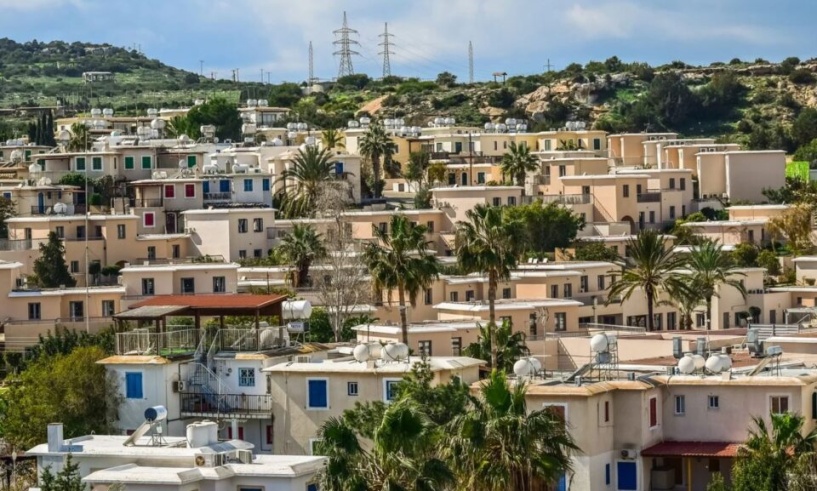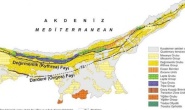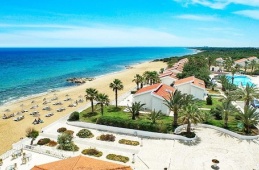Cypriot fintech Ask WiRE CEO Pavlos Loizou, in an analysis piece examining the landscape of the domestic real estate market in the coming year, explained that residential property prices will most likely remain steady from the previous year, bolstered by elevated demand and a resilient economy.
Loizou recapped some of the global events that have a bearing on prices, including the European and Cypriot economies, who, at the end of 2021, experienced a gradual recovery following the Covid-19 pandemic and the adverse effects of the resulting measures, such as the lockdowns. In addition, he noted the stock market at the time saw record highs, while inflation was inching upwards.
One year later, Loizou noted, supply chain disruptions became less pronounced, referencing the global container freight index, which is down by 74 per cent, going from $9,304 to $2,404, the stock market, where the S&P 500 fell by 19.5 per cent, going from 4,750 to 3,800, and inflation, which appears to have peaked at approximately 8-9 per cent.
“The war in Ukraine and the related geopolitical changes, the EU’s quick transition away from Russia as its primary energy supplier, and the rise in interest rates have all resulted in (and are still resulting in) a significant repricing of risk across asset classes, particularly those that are highly leveraged, such as real estate,” Loizou said.
“This repricing will continue in 2023, especially as other investment opportunities increasingly appear to be more appealing,” he added.
Loizou’s analysis first established an evaluation framework before using it to break down the situation in Cyprus.
He noted that “higher disposable income, population expansion, more lenient lending requirements, and lower interest rates all serve to increase home values”.
Moreover, he stated that as with residential real estate, the price of commercial property tends to shift upwards with GDP expansion and fall when interest rates and returns on other investments are greater.
“International investors have an effect on the dynamics of property prices in both the residential and commercial real estate sectors,” he said.
In terms of these driving factors for 2023, the Ask Wire CEO explained that disposable income is likely to have fallen, stricken by soaring prices, high inflation and the rise in interest rates.
What is more, banks have tightened their lending criteria for all types of properties, while interest rates for mortgages, development, and investments have and continue to rise.
“On the other hand, population has increased significantly due to arrivals from Ukraine, Russian, Belarus, and other countries causing a spike in residential rents and prices in certain areas,” Loizou said, noting that “the influx of overseas investors, particularly from Lebanon and Israel, is also causing prices to rise for certain property types”, something which primarily affects small residential units and tourist establishments in Larnaca.
In terms of commercial property, Loizou said, Cyprus’ GDP continues to rise but with higher interest rates and returns on alternative investments higher, investing in real estate for income return or capital appreciation has become less appealing.
“For example, the yield on the 10-year bond of the Cyprus government is currently at 4.2 per cent and banks across Greece and Cyprus are issuing preferred and Tier 2 bonds offering 7.0-10.0 per cent coupons,” he stated.
“The above indicates that the main drivers of growth in the local real estate market are likely to be population growth, inbound investment from overseas, and sticky supply, since it takes 2-4 years to add meaningful levels of stock),” he added, with the headwinds being lower disposable income and rising interest rates.
As a result of the above, Loizou explained that it would be reasonable to assume that the market with splinter into two distinct tiers, with some pieces of property designed for domestic buyers, while others will target international investors.
One of the variables here, according to Loizou, is if international investors and buyers will remain in the long-term to sustain the current range of prices.
“The likely answer is yes, as the local business environment and political stability, given what is happening in the region, and the ‘work from anywhere’ way of doing business are playing to Cyprus’ favour,” Loizou said.
Meanwhile, Loizou stressed that the aforementioned “sticky supply” is causing prices to rise, before noting that this is something that is “likely to change over the medium term as more projects are announced, especially in West Limassol and part of Larnaca”.
He went on to explain that new home construction has not fully recovered since the 2008 housing crisis and the 2013 banking crisis, and the supply of residential properties remains near historic lows.
“This tight inventory has made homes unaffordable for many, particularly first-time homebuyers,” Loizou said.
“In addition, those who purchased homes in recent years at extremely low mortgage rates are staying put, further limiting the overall housing supply,” he added.
What is more, he noted that the demand side has been severely affected by the increase in population over the past decade, something which has happened for a number of reasons.
“We do not expect that the housing market in Cyprus will see a significant correction, as the economy remains strong and demand for housing is still relatively high. In fact, low supply and strong demand mean that it is unlikely that home prices will drop significantly in the near future,” Loizou said.
“However, the potential for a slower pace of home price growth and declining sales in the coming year could make it easier for would-be buyers to access affordable housing. We are less positive on commercial real estate, where the range of alternative investment opportunities has increased significantly over the past year,” he added.
“That, combined with rising interest rates, is likely to cause repricing over the short to medium term, particularly on smaller units and dated properties,” Loizou concluded.















